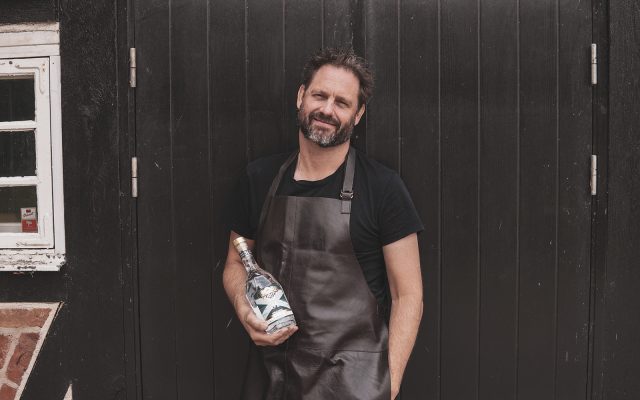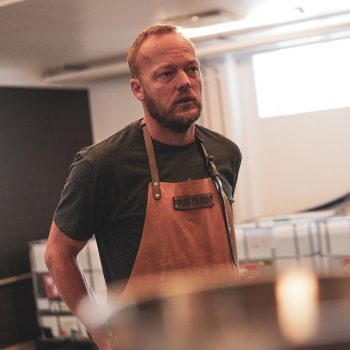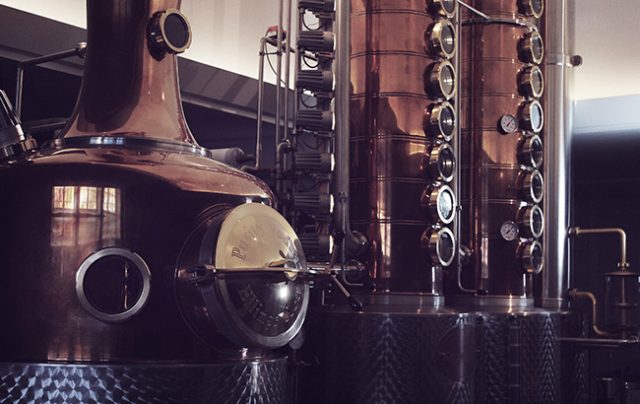Purity Distillery eyes up Europe
Thanks to its copper-surface distillation method, Sweden’s Purity Distillery creates a range of smooth vodkas and gins, for which it has been garlanded with hundreds of awards.

Nestled in the idyllic countryside of southern Sweden is Ellinge Castle, home to organic spirits producer Purity Distillery. The year 2016 marked a new era for the distillery as it moved into family ownership with the Tönnesson family.
With a portfolio of eight products, the brand has become known for its high-quality liquid, created using a unique copper-surface distillation method.
The aim of Purity Vodka was to create the “best vodka or gin for a Martini”, according to Mathias Tönnesson (pictured above), master blender, CEO and owner of Purity Distillery. “The Martini is the best way of drinking Purity because nothing dilutes it,” he said.

Purity is a dual-grain vodka, made with both malted barley and organic winter wheat. “Winter wheat is crisp and clear in flavour, and the malted barley is very sweet and round in flavour,” said Tönnesson. “We combine those grains into the mash bill, then we use a yeast that is very fruity and has a lot of flavour.” The distillery’s production is helmed by master distiller Stefan Magnusson.
Purity has won more than 230 awards, and Tönnesson attributes this to the brand’s copper-surface distillation, which results in a smooth and flavourful product. The process, which was created by Leif Nerhammars, creates “a lot of contact with the alcohol and the copper”, Tönnesson explained. Purity is the only vodka brand in the world that uses this process, Tönnesson said. The first cycle is 17 distillation steps over six hours, which cleans the spirit of unwanted flavours. The brand’s Purity Estate 17 Reserve product is the result of the first distillation cycle.
Purity Signature 34 Edition, as the name implies, goes through an additional 17 distillations (34 in total) but for a longer period of 12 hours. Purity Connoisseur 51 Reserve Vodka takes even longer to produce, with 51 distillations over a 20-hour period. It’s a process that Tonnesson believes creates extra smoothness.
Tönnesson also notes that there is no harshness when you drink Purity at room temperature. “We add flavour and smoothness in every production step,” he added. Soft water that is rich in sodium is also used the blending stage.
In addition, the distillery produces gin and flavoured vodka using Purity Vodka 34 as its base. “I wanted to create a gin with a long and large taste profile,” Tönnesson said.
The gins are made with nine botanicals: juniper, thyme, basil, blueberry, lingonberry (native to Sweden), coriander, lavender, cardamom and angelica. The gin range includes a Nordic Dry Gin, a Navy Strength (57.14% ABV), and an Old Tom.
The distillery also produces Purity Spritz, a 30% ABV product made with vodka, grapefruit, bergamot, and oranges. It is recommended mixed with Prosecco, Champagne, mineral water, or tonic. The brand is also launching two new products this year, including a lemon-flavoured expression.
Purity Distillery is seeking to expand its presence globally, after establishing a significant stronghold in the US. The brand is available in 30 states, and is now the ninth-largest super-premium vodka by volume in the country, with the nation representing 90% of Purity’s sales. “We’re a very successful brand in the US, and we’re looking for partners in Europe,” said Tönnesson. Outside of the US, Purity is available in 20 markets.
Purity is looking to build its sales in Europe, highlighting markets such as Sweden, Denmark, Poland, Italy, the Baltics, Hungary and Spain. The brand is seeking a distributor in the UK, France, Germany and Austria.
“We want to conquer the world with copper-surface vodka,” Tönnesson explained. The brand is also in discussions to launch in Singapore, Thailand and Dubai.
Tönnesson hopes to educate and inspire bartenders about the story of the brand and its craftsmanship, with a focus on the Martini. “A good bartender should ask how you like your Martini,” he said. Unlike in the US, Tönnesson said European drinkers were “not as fussy about how they drink a Martini”.

He pointed to five steps to mastering a signature Martini, starting with choosing your base spirit (gin or vodka) then selecting an aromatised wine. The third step focuses on your choice of chill and dilution, followed by the spirit-to-wine ratio, and your pick of a garnish or seasoning. Tönnesson’s personal preference is a “Montgomery-style Purity Vodka Martini, with a lemon twist and three olives on the side”.
He added: “Our goal for 2024 is to educate and inspire all Europeans to drink Purity Martinis, and educate people on making their own signature Martini.”
Related news
Cocktail stories: Speed Bump, Byrdi
